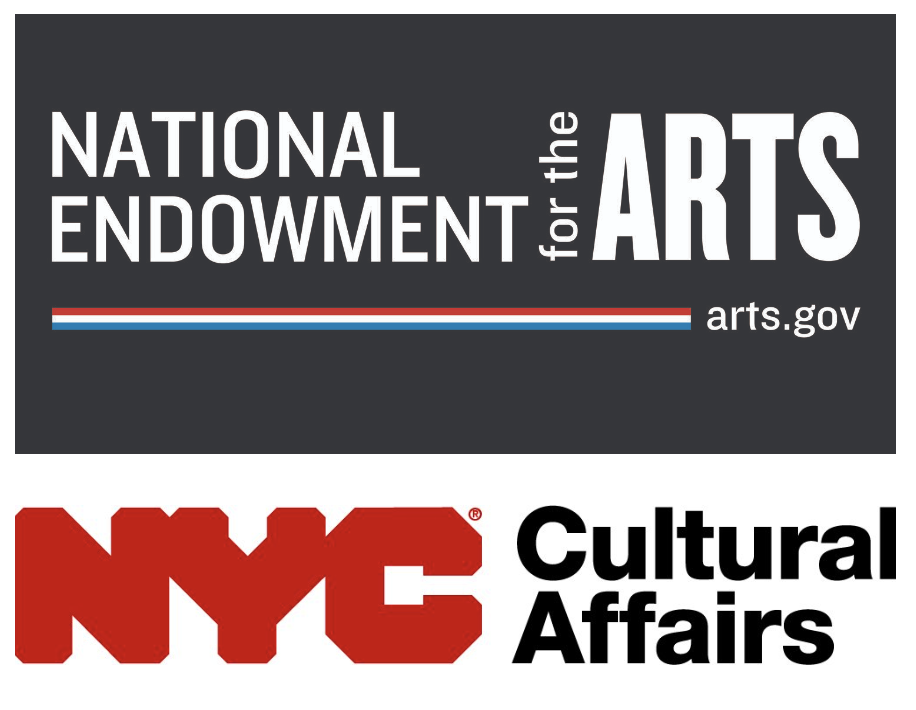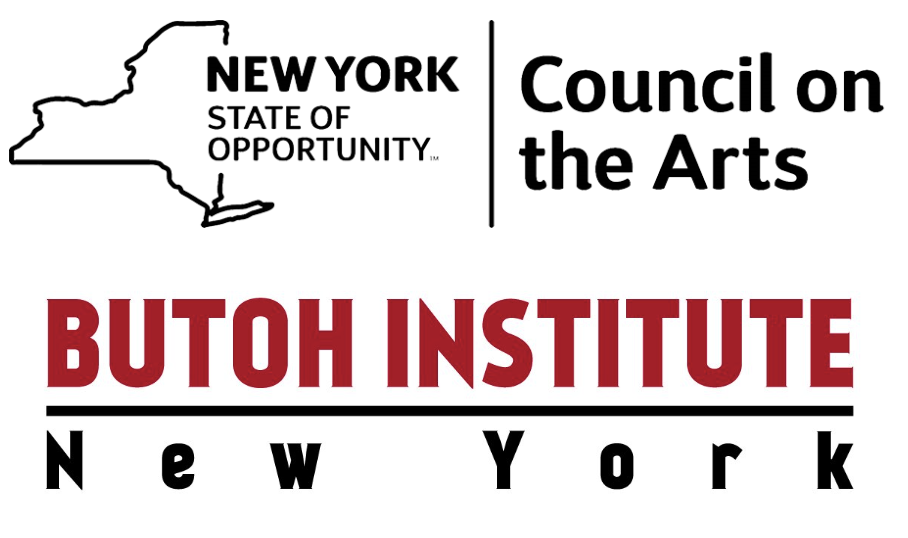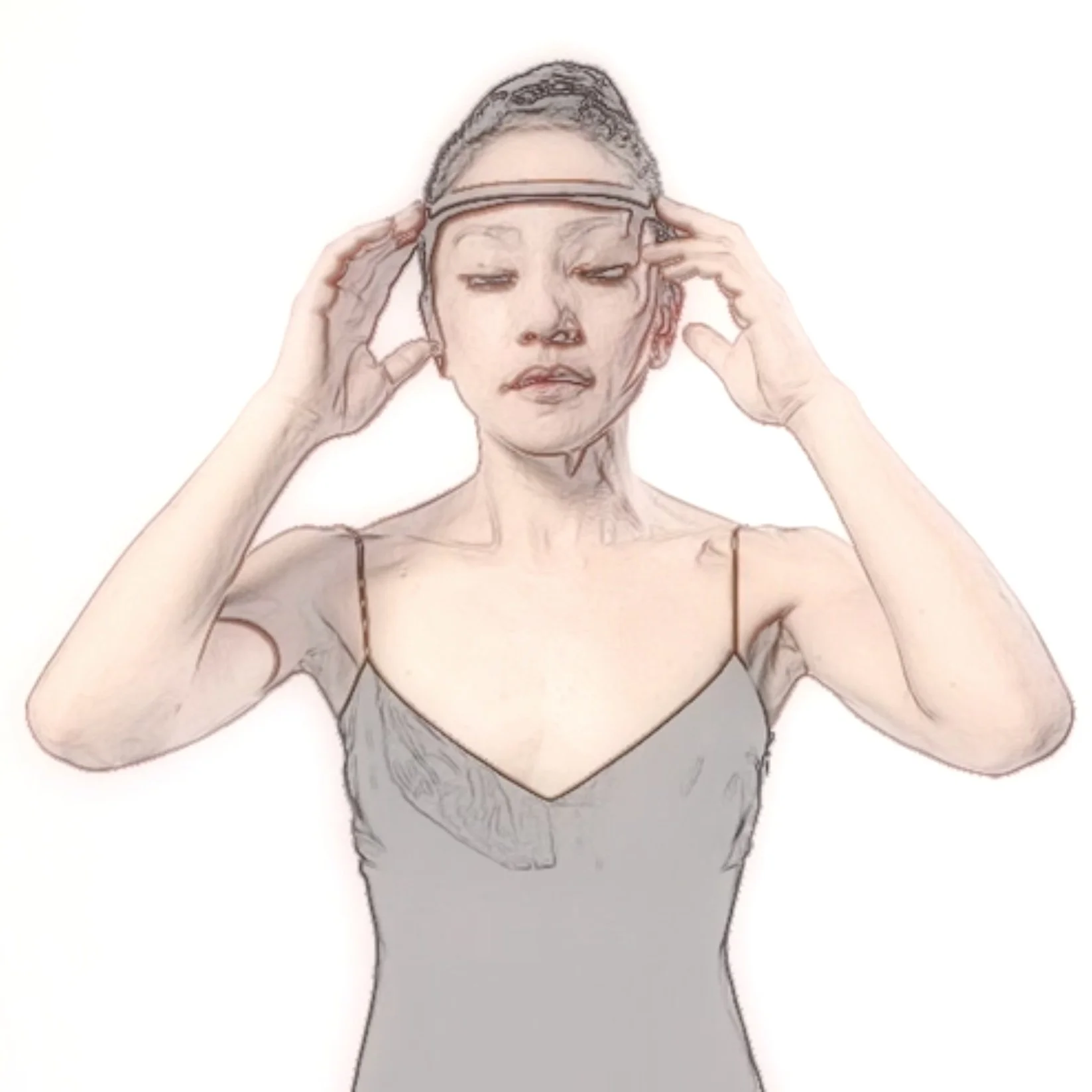VANGELINE THEATER
The Slowest Wave
OCTOBER 6-8, 2022
8PM
$20 in advance / $25 at-the-door
Please note: this piece will contain high and low-frequency sounds that may be sensitive to some audience members and the use of a hazer.
There will be NO LATE SEATING. Please arrive early.
FRIDAY & SATURDAY PRE-SALE TICKETS are SOLD OUT! Come early for limited at-the-door tickets & waitlist!
〰️
FRIDAY & SATURDAY PRE-SALE TICKETS are SOLD OUT! Come early for limited at-the-door tickets & waitlist! 〰️
The Slowest Wave is a pioneering project combining butoh and neuroscience. In collaboration with neuroscientists Sadye Paez, Constantina Theofanopoulou and Jose ‘Pepe’ Contreras-Vidal, and composer Ray Sweeten, Vangeline choreographed a 60-minute ensemble butoh piece, which is uniquely informed by the protocol being established for a scientific pilot study researching the impact of butoh on brain activity. Vangeline and Sweeten are building on a 20-year history of creative collaboration with a soundscape that is informed by techniques of brainwave entrainment (techniques that affect consciousness through sound). The Slowest Wave investigates the relationship between human consciousness and dance through the use of scalp electroencephalography (EEG); and will foster connections and understanding between dancers, artists, scientists, engineers, and audiences from around the world.
Vangeline is a teacher, dancer, and choreographer specializing in Japanese butoh. She is the artistic director of the Vangeline Theater/New York Butoh Institute (New York), a dance company firmly rooted in the tradition of Japanese butoh while carrying it into the twenty-first century.
With her all-female dance company, Vangeline’s socially conscious performances tie together butoh and activism. Vangeline is the founder of the New York Butoh Institute Festival, which elevates the visibility of women in butoh, and the Queer Butoh festival. She pioneered the award-winning, 15-year running program The Dream a Dream Project, which brings butoh dance to incarcerated men and women at correctional facilities across New York State. Her choreographed work has been performed in Chile, Hong Kong, Germany, Denmark, France, the UK, Hong Kong, and Taiwan.
She is the recipient of the 2022/23 Gibney Dance in Process Artist Residency; the winner of a 2022 National Endowment for the Arts Dance Award; the 2015 Gibney Dance Social Action Award, and the 2019 Janet Arnold Award from the Society of Antiquaries of London. She is also a 2018 NYFA/NYSCA Artist Fellow in Choreography for Elsewhere.
Vangeline has taught at Cornell University, New York University, Brooklyn College, CUNY, Sarah Lawrence, and Princeton University (Princeton Atelier). Film projects include a starring role alongside actors James Franco and Winona Ryder in the feature film by director Jay Anania, 'The Letter" (2012-Lionsgate). In recent years, she has been commissioned by triple Grammy Award-winning artists Esperanza Spalding, Skrillex, and David J. (Bauhaus). She is the author of the critically-acclaimed book: Butoh: Cradling Empty Space. Her work is the subject of CNN’s “Great Big Story” "Learning to Dance with your Demons.” She is also featured on BBC’s podcast Deeply Human with host Dessa (episode 2 of 12 : Why We Dance) and is a member of the International Association for Dance Medicine and Science.
"Vangeline, with her controlled flow of energy and compelling energetic shifts, obliges a depth of concentration that nullifies time." - Karen Greenspan. The Ballet Review. Summer 2018
Website: www.vangeline.com
Instagram: @vangelinebutoh
Photo by Tal Shpantzer
*Triskelion Arts is ADA-compliant and committed to making our theater welcoming and accessible to all. For seating questions, and accommodation, or assistance is needed for purchasing tickets, please contact us at 718.389.3473 or info@triskelionarts.org. Accessible seats are available for each performance and an accessible restroom is located on street level.
The Slowest Wave is supported in part by an award from the National Endowment for the Arts, as well as the NSF IUCRC BRAIN Center at the University of Houston, and by public funds from the New York City Department of Cultural Affairs in partnership with the City Council, and the New York State Council on the Arts with the support of the Governor and the New York State Legislature.




